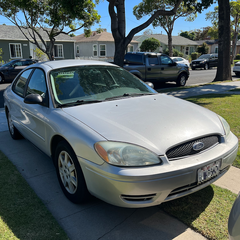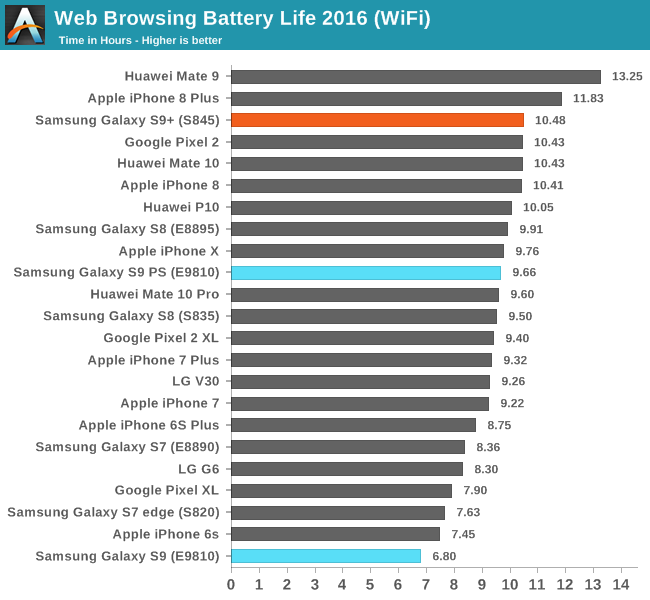Confirmed, the iPhone 8 Plus and iPhone X have superior battery life than that of the Samsung Galaxy S9 despite the S9 having almost 1,000mAh more.
-

-

-

Exynos S9, more specifically I would say. If you look here you can see at stock the web browsing battery life is absolutely horrendous. Whereas the S845 S9+ is doing fine

- DrMacintosh and 8uhbbhu8
-
 2
2
-
Of course it does longer on a smaller battery, the OS has barely any functionality compared to Android.
- 8uhbbhu8, DocSwag and DrMacintosh
-
.png) 3
3
-

Lol @Captain Chaos not many people find the things that Android can do that iOS can’t all that useful these days.
And that list is getting smaller every day.
-

It's an absolute shame. They did so well on the hardware side of thing and finally got an SoC competitive with Apple's in terms of single threaded performance, and then turn around and completely screw it up on the software side and end up with something worse than the 845 while consuming way more power...
I wish they could fix it with an update, and theoretically they can, but I sadly doubt that they will.
-

Anandtech has a decent explanation in their S9 review
QuoteAs to why this is happening on the Exynos is something that I attribute to scheduler and DVFS. Samsung’s new scheduler and DVFS just seems absolutely atrociously tuned for performance. I tested an interactive workload on both Snapdragon and Exynos devices and the contrast couldn’t be any greater. On the Snapdragon 845 Galaxy S9 a steady state workload thread will seemingly migrate from a full idle state of the little CPUs onto the big CPUs after 65ms. At the migration moment the big CPUs kick into full gear at 2803MHz and will maintain that frequency for as long as the workload demands it.
On the Exynos 9810 Galaxy S9 the same workload will also migrate around at the 60ms time from the little cores up to the big cores, however once on the big cores the thread starts at the lowest frequencies of the big cluster – 650-741MHz. It takes the workload a whole 370ms until it reaches the 2314MHz state of the M3 cores – which according to the SPEC benchmarks is around the maximum single-threaded performance of the Snapdragon 845’s performance cores. To reach the full 2703MHz of the M3 cores the workload needs to have been active for a staggering 410ms before the DVFS mechanism starts switching to that frequency state.
UI workloads are highly transactional and very rarely is there something which takes longer than a few frames. The fact that the Exynos 9810 takes over 5x longer to reach the maximum performance state of the Snapdragon 845 basically invalidates absolutely everything about the performance of its cores. For workloads which are shorter than 400ms (which is a *lot* of time in computing terms) the Snapdragon will have already finished the race before the Exynos warms up. Only at higher workload durations would the Exynos then finally catch up. Acceleration vs maximum speed being the key aspects here. This is Samsung’s first EAS based scheduler for Exynos devices, and the way the schedutil governor is tuned here is a great disappointment for performance.
Simply put, it takes really long to boost up to higher clock speeds when the cores are loaded. This results in bursty workloads, like web browsing, really suffering.
I think this tweet from Andrei F, the smartphone editor for Anandtech, also adds explanation as to why this can also affect tasks that last longer and aren't as bursty, such as PCMark
-
True that, @DrMacintosh. I don't use most of the functionality of mine, and my ROM is significantly leaner than the bloated stock one that my S7 came with.
That being said, Android has always been a resource-hungry and hard to optimize OS due to the core having to work with so many different models. But TBH I'm fine with that.






.png)